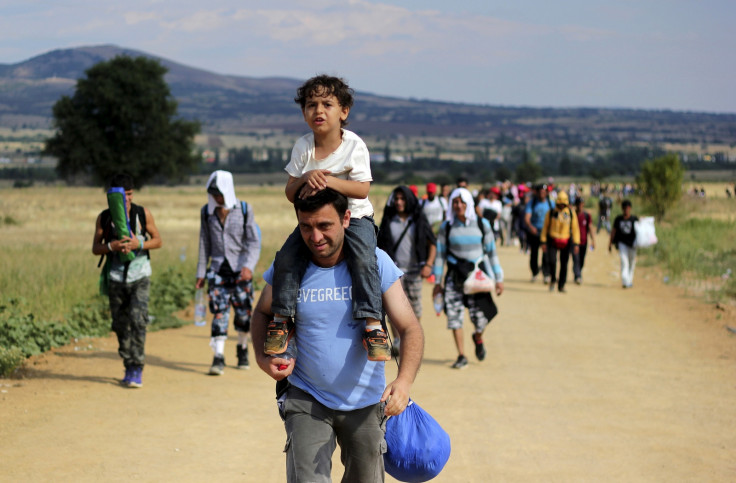EU migrant crisis: UN calls for coordinated strategy to handle influx

The UN refugee agency has called on European nations to come out with a coordinated strategy for handling the migrant crisis amid the worsening situation. The United Nations Commissioner for Refugees (UNHCR) said other nations should share the burden of eastern European countries, which primarily bear the brunt of the influx.
The refugee agency expects up to 3,000 people to cross the Mediterranean in search of better living despite the ongoing measures by the Macedonian and Hungarian governments. UNHCR spokesperson Melissa Fleming said: "They are coming in large groups of 300 to 400 people and then travelling onwards by train or bus to Serbia. We are anticipating that this influx and this route is going to continue at the rate of up to 3,000 people per day."
Nearly 300,000 asylum-seekers, mostly from Africa and the Middle East, have reached European shores so far this year. About 181,500 people have landed in Greece some 108,000 in Italian port cities.
Addressing a news conference in Geneva, Fleming said: "It's vital that these people are treated humanely, also that essential assistance is provided, not just by responding to their basic needs but respecting also their dignity, their human rights as asylum seekers and migrants."
"While understanding legitimate concerns facing countries in the region - obviously this is an unexpected large number of people - we do appeal to the governments involved to implement border management measures with humanity and also in accordance with international obligations."
The Comments from the UNHCR have come just as when Hungary is increasingly becoming a bottleneck for the refugee influx as they continue their journey towards the north. Authorities say a record number of 2,093 refugees crossed the border near the Hungarian-Serbian border town of Roszke making it the highest toll till to date. The figure has come days before the European Union member Hungary is to complete construction of a border fence.
© Copyright IBTimes 2025. All rights reserved.






















